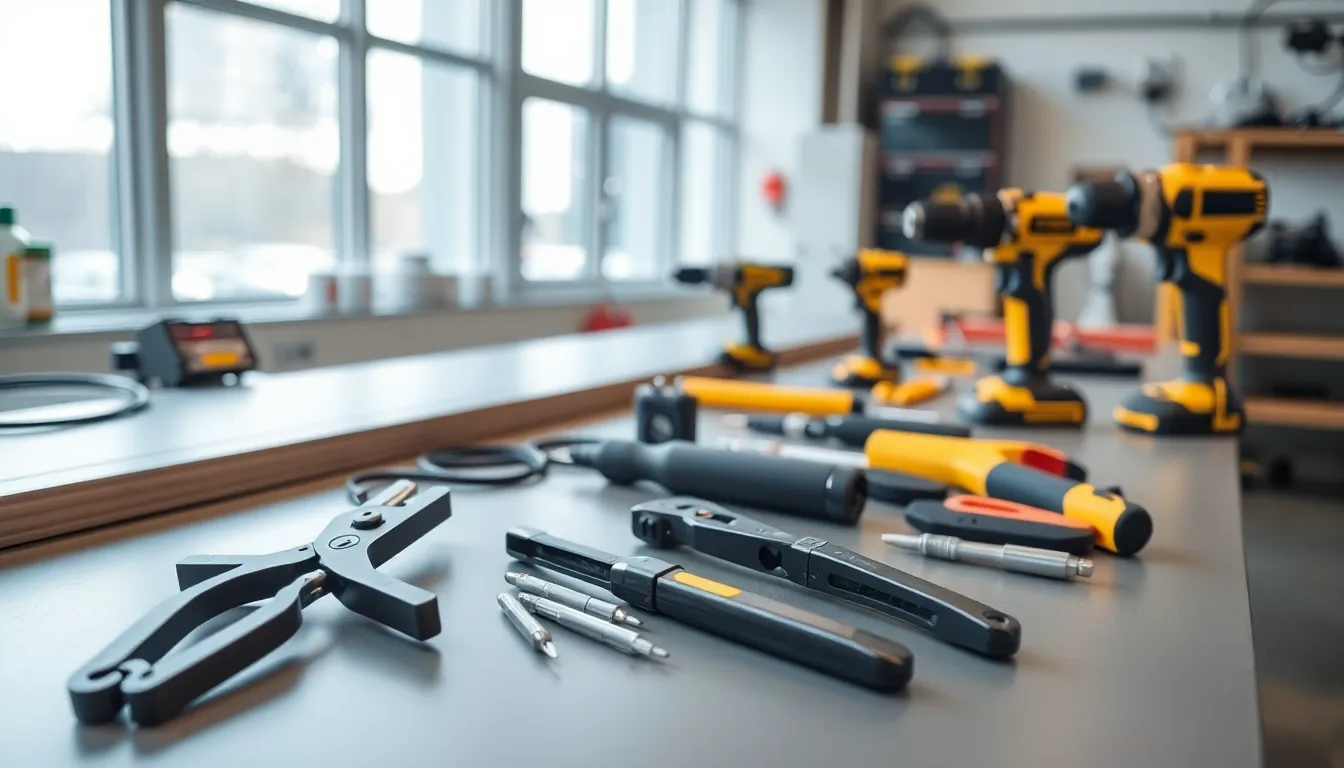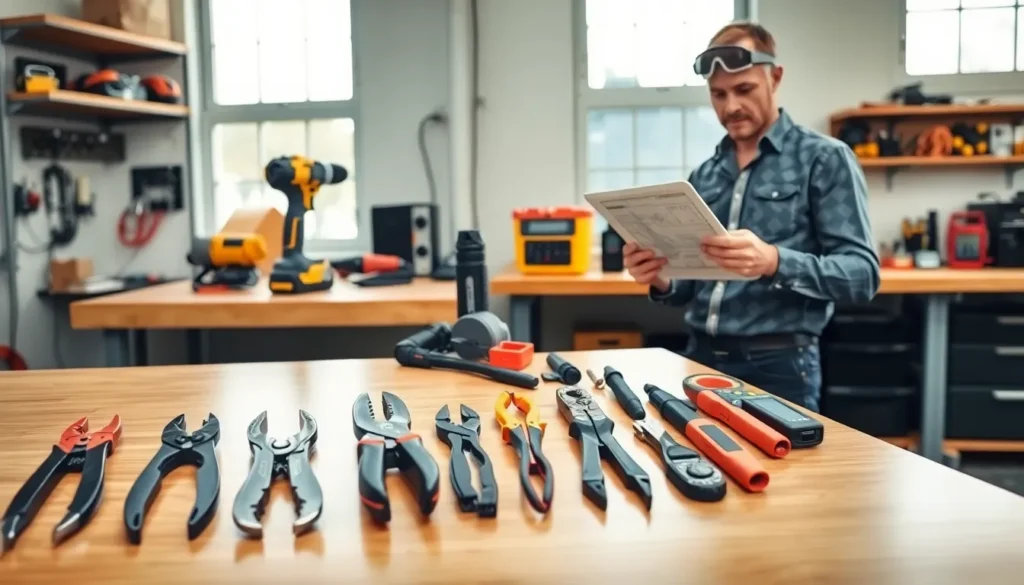Table of Contents
ToggleElectricity is both a fascinating force and a formidable one. Enter the electrical workshop, where the right tools can turn a shocking headache into a smooth, shock-free breeze. Whether you’re a seasoned technician or a curious DIYer, having the right electrical workshop tools is crucial. It’s like trying to cook without a knife: good luck with that. So, let’s jump into the essentials that will electrify your toolbox without shocking your budget.
Key Categories of Electrical Workshop Tools

Every electrical technician knows that having the right tools can make or break a project. Let’s break it down into the primary categories that every workshop should include.
Hand Tools for Electrical Work
Hand tools are the backbone of any electrical workshop. These trusty companions get the job done without needing a power outlet. Tools like wire strippers, pliers, and screwdrivers form the holy trinity of hand tools.
- Wire Strippers: These handy gadgets make removing insulation a breeze. Nobody wants to wrestle with wires: let your tool do the heavy lifting.
- Pliers: From needle-nose to combination, pliers help grip and bend wires with precision. Think of them as the Swiss army knife of your toolbox.
- Screwdrivers: A good set of screwdrivers, both flat-head and Phillips, can tackle almost any fastener you encounter. Plus, the right grip contributes to better torque, making you feel like a superhero.
Power Tools Commonly Used
Power tools introduce the sweet taste of efficiency, reducing the manual labor burden. These tools are essential for larger tasks or when speed is of the essence.
- Drills: Cordless drills are not just for boring holes: they can also drive screws into wood or drywall, making them a versatile addition. Look for a model with adjustable speed settings for enhanced control.
- Angle Grinders: When metal work is involved, angle grinders make quick work of cutting and shaping. Just remember, sparks fly, so make sure your safety gear is on point.
- Oscillating Multi-Tools: These tools can sand, cut, scrape, or grind, depending on the attachment. Imagine having one tool that does it all, it’s like having the Swiss army knife of power tools.
Test and Measurement Equipment
To ensure that everything is functioning as it should, technicians need reliable test and measurement equipment. These tools help diagnose issues, verify electrical connections, and keep projects on track.
- Multimeters: The all-in-one champ of electrical testing. They measure voltage, current, and resistance. Think of it as the doctor’s stethoscope, checking the “heartbeat” of your circuits.
- Clamp Meters: These handy devices allow you to measure current without needing to disconnect the circuit. Just clamp it around the conductor, and voila. You have accurate readings without the hassle.
- Voltage Testers: Simple but effective, voltage testers help confirm whether a wire is live. It’s a good tool for peace of mind before diving into repairs.
Safety Gear in the Workshop
Safety should never take a backseat, especially in environments buzzing with electricity. Your safety gear can be the difference between a small zap and a major incident.
- Insulated Gloves: These gloves protect against electric shock and cuts. Remember, it’s better to be safe than sorry.
- Safety Glasses: Eye protection is essential when working with tools that produce sparks or debris. Safety glasses should be as essential to you as your tools themselves.
- Hard Hats: If your workspace involves overhead tasks, hard hats will guard against unfortunate accidents. Better safe than sorry: even an accidental bump can lead to serious consequences.
Best Practices for Tool Maintenance
Maintaining your tools doesn’t just prolong their life: it also ensures you’re working safely and efficiently. Some tips include:
- Regular Cleaning: Dust and debris can accumulate over time. Regularly clean your tools after use to keep them in top condition.
- Lubrication: Moving parts need their fair share of oil. Lubricating your tools not only aids in functionality but also prevents rust and wear.
- Proper Storage: Use a designated toolbox or wall-mounted storage to keep your tools organized. This way, you avoid the tragedy of misplaced items. Plus, it helps you to know exactly what you have on hand.





